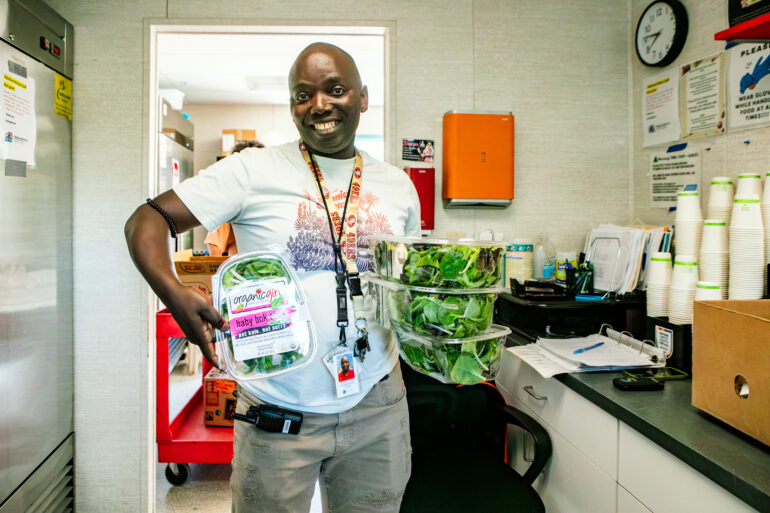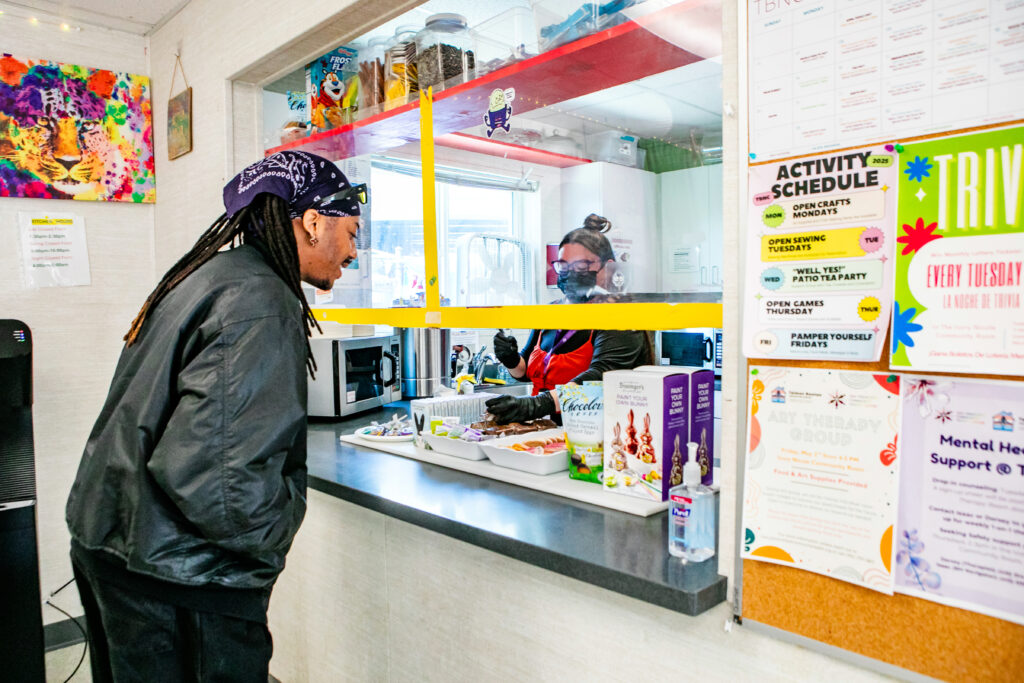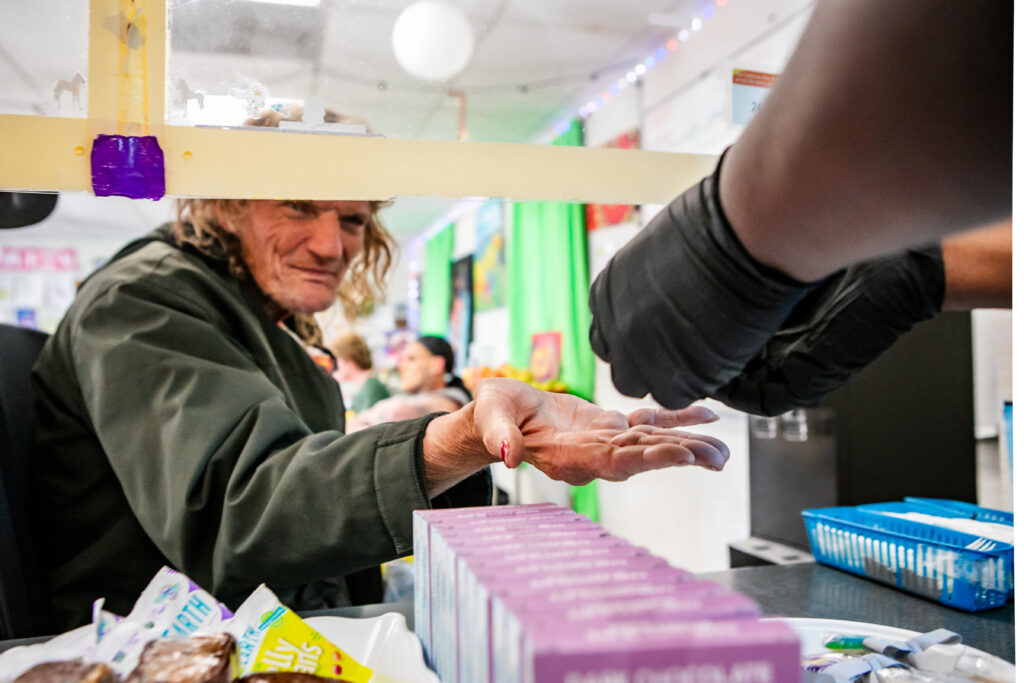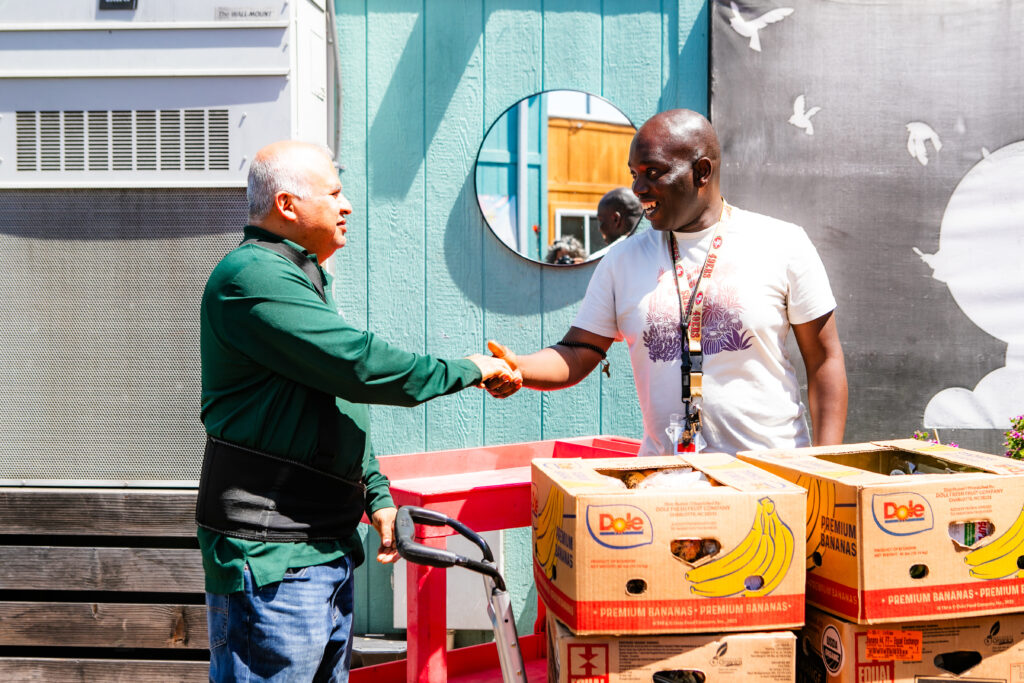
We are thrilled to have our work featured in the Make It Better Foundation's Magazine.
Read the article on Make It Better's website
The Ripple Effect of a Meal: How Food Restores Dignity in Times of Crisis
by Marisol Leos5 days ago

In moments of crisis, healing often begins with something simple: a warm meal, a quiet space, the sense that someone sees you. For those navigating homelessness, trauma, or identity-based marginalization, even these basic comforts are often out of reach. But when they are made available — intentionally, consistently, and with care — they can be transformative.
This belief in the power of food is what drives ExtraFood, a San Francisco Bay Area nonprofit rescuing surplus food and redirecting it to people who need it most. At the Taimon Booton Navigation Center (TBNC) in San Francisco, a shelter for transgender, gender non-conforming, and intersex (TGI) individuals and cisgender women — and a client of ExtraFood — food is more than sustenance. It is a tool for healing.

“We see it every day,” says Shira, Program Manager for Case Management at SF Community Health. “You can fall on hard times in an instant. And the systems we have just aren’t built for the complexity of our community’s lives.”
But when deliveries from ExtraFood arrive — fresh, nourishing, and consistent — something shifts. “There’s a ripple of joy,” Shira says. “Smiles light up the room. That one meal can shift the entire energy of the day.”
Food Equals Dignity and Health
For the residents of TBNC, food isn’t just about nutrition. It’s about dignity. It’s about being offered something that says, “you matter.” That small, sweet moment becomes part of a larger emotional scaffolding, helping people rebuild after trauma.

Food insecurity connects to poor mental health, higher stress, and chronic illness. But access to fresh, nourishing meals, delivered with respect, can reduce those effects and spark resilience. It’s also an environmental win. The EPA’s Food Recovery Hierarchy highlights feeding hungry people as one of the most effective ways to reduce food waste, a critical lever in the fight against climate change.
Yet just as this work becomes more urgent, support is dwindling. In 2025 alone, nonprofit food programs across the U.S. have lost more than $420 million in public funding used to feed low-income communities. Meanwhile, grocery stores continue to discard an estimated 16 billion pounds of food each year, even as millions go hungry.
It’s a painful contradiction — but also a call to action.
In these conditions, food becomes a powerful equalizer. And not just any food. Food that affirms a person’s worth. Shira often sees residents pause in moments of quiet joy; sitting outside with fresh produce, sharing a meal with a neighbor, finding a flicker of peace in the middle of uncertainty. “Food is a physical necessity,” she says, “but it’s also an emotional one.”

At its best, food connects us. It brings people together. It bridges waste and want. And in the hands of organizations like ExtraFood — and those who support them — it becomes one of the most profound ways we can care for each other.
How to Help
Learn how to reduce food waste at home by visiting EPA’s Food Recovery Guide. You can also volunteer with a local food recovery nonprofit like ExtraFood, donate to support organizations that provide nourishing food with dignity, or advocate for sustainable public funding for hunger relief programs.